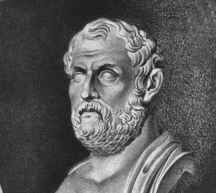General Choi Hong Hi (founder of Taekwon-Do) once stated: "The degree of success (or failure?) of the Taekwon-Do training is greatly dependant on how one observes and impliments the tenets.
Having said that, the world has changed greatly since General Choi's day and can no longer be interpreted in shades of 'black' or 'white,' as suggested earlier. Therefore, we who fail to observe the tenets are not necessarily 'failures,' since both Taekwon-Do and Hapkido were invented as 'life-long studies' that were not designed to be 'mastered' in a short period of time ?
All students of Taekwon-Do should be learning patience, empathy and tolerance for less than ideal situations, in addition to perfection of character ?
Courtesy (Ye Ui) Students of Taekwon-Do and Hapkido should try to develop their character and carry out the training methodically by practising the fundamentals of courtesy: Integrity (Yom Chi) A person of integrity is able to differentiate 'right' from 'wrong,' and to have it on his conscience if he does something that is against his principles. Loyalty (Choong) According to Webster's New Collegiate Dictionary, the word 'loyalty' originated from the medieval French word, Leial, meaning 'legal.' Hence, loyalty was originally defined as 'faithful in allegiance to one's lawful sovereign (i.e., the 'king' or 'queen').' It later became defined as: 'unswerving in allegiance; faithful to a private person to whom fidelity is due; or faithful to
In contrast, one of the greatest values that Taekwon-Do and Hapkido teaches is through faithfullness and allegiance to one's personal goals and also, to one's teachers, a person can develop self-satisfaction, fitness, humility, mental-discipline and respect towards others, which can ultimately lead to a happier, more peaceful lifestyle. Perserverance (In Nae) Confucious said: 'One who is impatient in trivial matters can seldom achieve success in matters of great importance.' This wise observation is certainly true, because a person of patience will usually accomplish what he has set out for, no matter how great the odds are against him. Through sheer perseverance and tenacity, he will definitely attain his goal. Self-Control (Guk Gi) Self-Control is very essential in performing the rituals of Taekwon-Do and Hapkido. A loss of self-control can be disastrous to the student, as well as his opponent. A person who has a tight reign over himself is able to live and work within his capacity. He knows his strengths and failings; thus, he can act in accordance to his sphere of capabilities. Indomitable Spirit (Baekjul Bool Gool) When a brave person and his principles are pitted against overwhelming odds, an indomitable spirit is shown when he adheres to his beliefs.
.
The same applies to perfecting the skills of Taekwon-Do and Hapkido. Perseverance is one of the most important secrets in becoming a master of the arts.
A serious student of Taekwon-Do and Hapkido must be ever ready to defend the cause of justice. When confronted with iniquity, he will handle it without any fear or the least hesitation, in a spirit that is indomitable and uncompromising towards wrongs.
The Philosophy of Taekwon-Do
(Taekwon-Do Chul Hak)
Taekwon-Do is based on the philosophy of the ethical, moral and spiritual standards by which mankind can live together in harmony. The art's patterns (TUL) stem from the ideals and exploits of great people from Korean history - well known military and civil leaders who have never infringed on their neighbors' rights, yet who fought valiantly and made self-sacrifices to defend their homeland against invading enemies.
Each Tul (or pattern) of Taekwon-Do depicts the thoughts and actions of these remarkable men, so the students of Taekwon-Do must reflect the true objectives of those whose name each Tul bears.
Thus, Taekwon-Do should never be used under any circumstances for selfish, aggressive or violent purposes, either by an individual or group. Nor should it be employed for any commercial or political designs.
The following philosophy and guidelines will be the foundation of Taekwon-Do by which all serious students of this art are encouraged to live:
1. Be willing to go where the going may be tough and do the things that are worth doing, even though they may be difficult.
2. Be gentle to the weak and tough to the strong.
3. Be content with what you have in money and position, but never in skills.
4. Always finish what you begin, be it large or small.
5. Be a willing teacher to anyone, regardless of religion, race or idealogy.
6. Never yield to repression or threat in the pursuit of a noble cause.
7. Teach attitude and skill with action rather than words.
8. Always be yourself, even though your circumstances may change.
9. Be the eternal teacher who teaches with the body when young, with words when old, and by moral precept, even after death.
Copyright 1992 - Taekwon-Do - The Complete Grading Syllabus, (3rd Edition)
By: Master Leong, Wai Meng, 9th Degree

"We must remember than one man (and his martial art)
....is much the same as another.
And he who is best
is he who is trained
in the severest school."
THYCIDIDES (former Greek Army General
and historian - 450 to 400 B.C.)